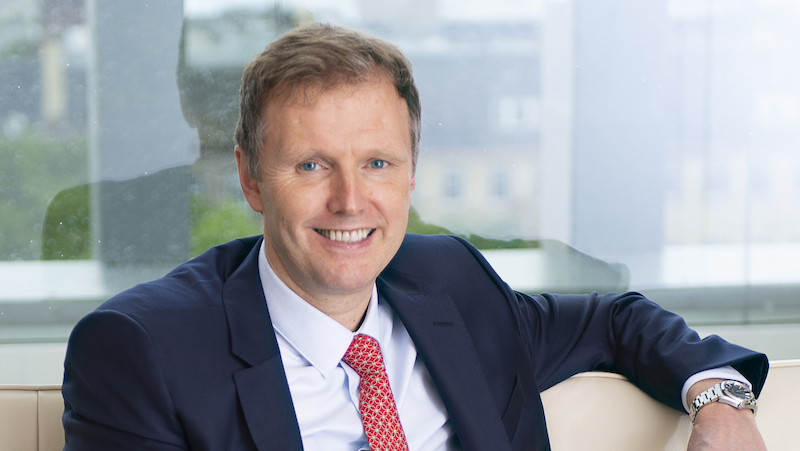Abrdn has sold its discretionary fund management (DFM) business, Abrdn Capital, to LGT, transferring £6.1bn of assets under management (AUM) and nearly 140 employees to the international banking and asset management group.
The deal, worth around £140m, will boost LGT Wealth Management’s AUM to more than £28bn, and it will benefit from the 4,000 clients currently with Abrdn Capital.
However, Abrdn confirmed that its managed portfolio service (MPS), which is currently part of the DFM business, would not be sold to LGT. Instead, it will be carved out and made part of Abrdn’s advice arm.
Abrdn views its MPS as an important growth channel, adding that it aligns well with the way that the UK personal investment market is developing.
LGT has agreed to pay around £140m upon the completion of the acquisition, which is expected be in the second half of this year.
Abrdn’s CEO Stephen Bird (pictured) said: “We are establishing one of the UK’s leading personal wealth businesses, and this deal represents an important step forward in our strategy to focus on our high-growth, platform-led businesses.
“Our track record over the past two years shows that where we identify non-core capabilities, we will look to divest and redeploy capital in ways that better align with the interests of our investors, clients and customers.
“The decision to sell our DFM business underlines our commitment to that principle.”
The CEO of Abrdn’s personal arm, Richard Wilson, said its strategy for growth was focused on integrating the services of Interactive Investor (II), which Abrdn acquired last year, with financial planning services.
‘One of the hardest investing years in living memory’
The sale of Abrdn’s DFM business was announced within its 2022 annual report, where it already was classified as “an operation held for sale” by 31 December. Aside from that, the report revealed the impact of what it described as “the toughest investment year in half a century”.
The firm swung to a pre-tax loss of £615m for 2022, comparing unfavourably to the £1.12bn profit it raked in during 2021. It posted an adjusted operating profit of £263m, but this was still down by over 18% on 2021’s figure.
Assets under management and administration (AUMA) fell by 8% across the 12 months, hitting £500bn, with the majority of the losses concentrated in the firm’s ‘investments’ arm.
With £376bn AUM, revenue in that area of the business suffered most acutely from lower AUMA, falling by 13% year-on-year. The firm’s considerable Asia and emerging markets exposure caused some pain as those indices experienced double-digit losses.
Net outflows also increased six-fold, totalling £37.9bn, the majority of which was driven by Lloyds Banking Group pulling £24.4bn as part of its mandate withdrawal. Even excluding this figure, Abrdn still suffered £10.3bn of net outflows, up from £3.2bn in 2021.
Its ‘personal’ arm was a bright spot in the report, with the shedding of its DFM business unlikely to have much material impact on performance. AUMA in that area nearly quadrupled to £67bn following the acquisition of II, despite only seven months of contributions; adjusted operating profit leapt 800% to £72m, with Abrdn’s personal wealth business contributing just £5m to that figure.
The firm’s dividend remained steady at 14.6p per share.
CEO Bird called 2022 “one of the hardest investing years in living memory”, but praised his firm for the resilience of its more diversified model.
He added: “The shape of the group is now settled following the 2022 acquisition of II. This significantly expands our reach into the higher growth UK savings and wealth platform market, which is forecast to grow at a realistic rate of 11% by 2027.”
Bird was also pleased with the ongoing fund rationalisation process, which saw Abrdn close or consolidate 58 funds last year. He added that it is on track to close a further 80 in 2023, and predicted net cost savings of around £75m as a result.
See also: Abrdn in talks to sell private equity unit to Santander










